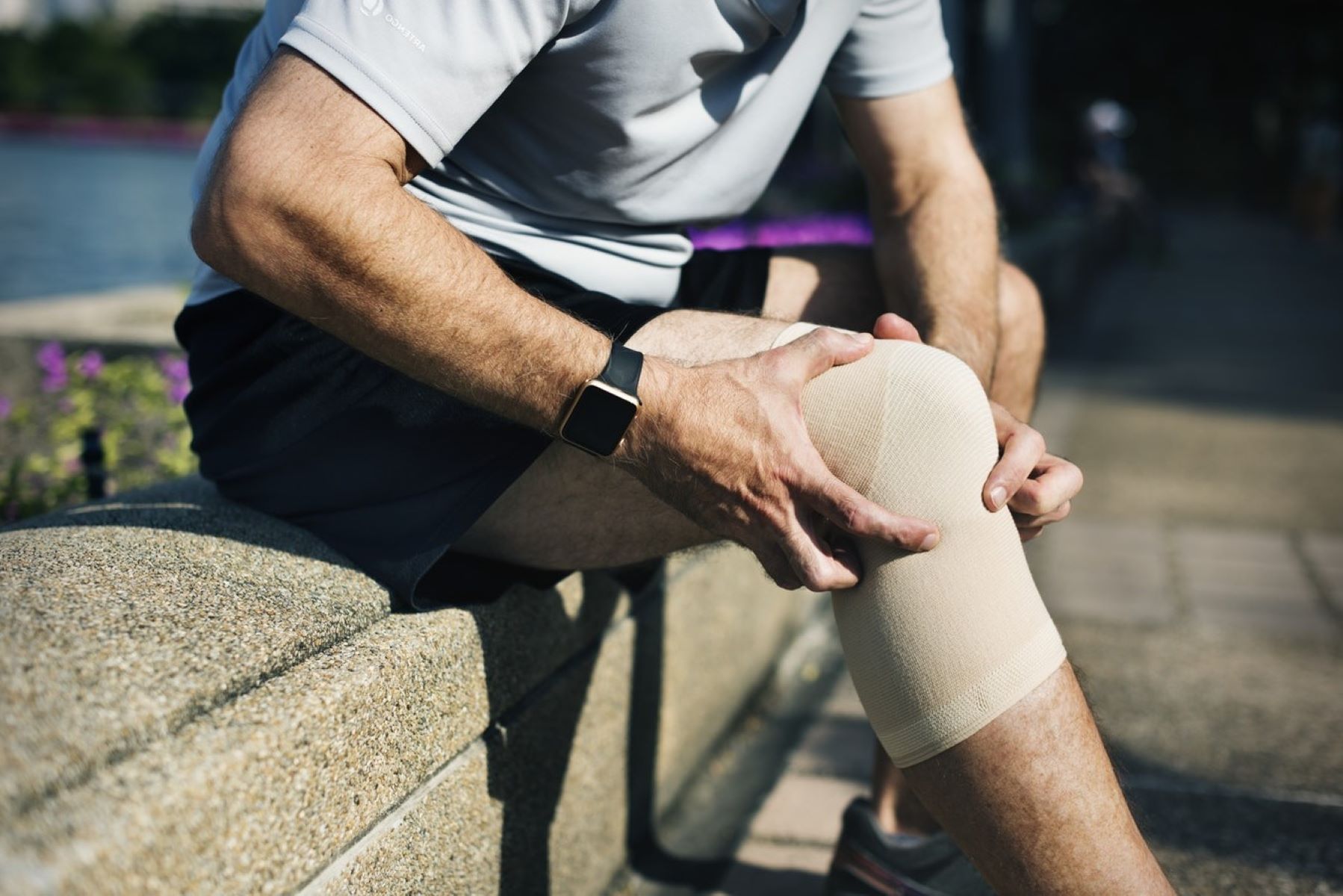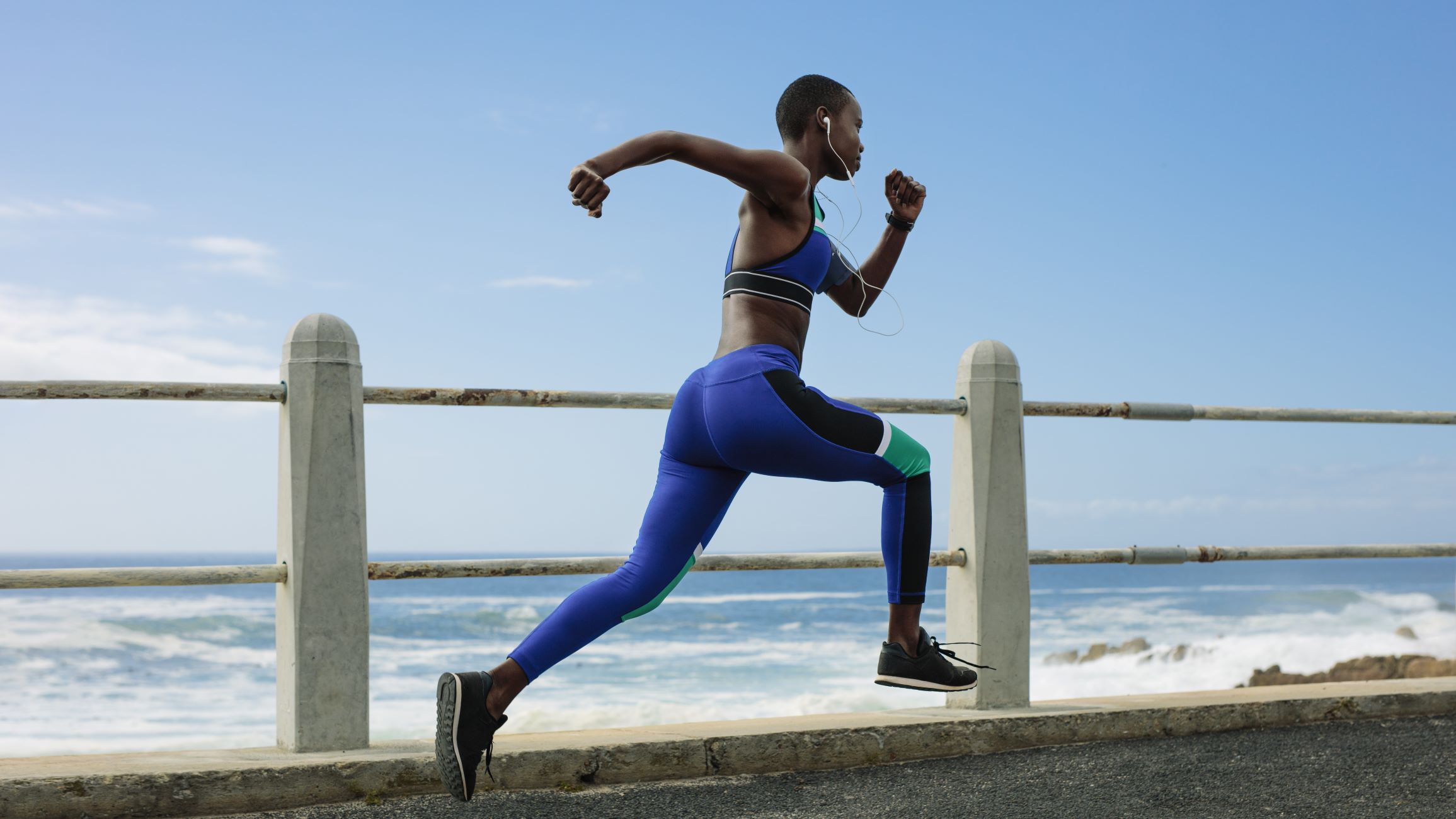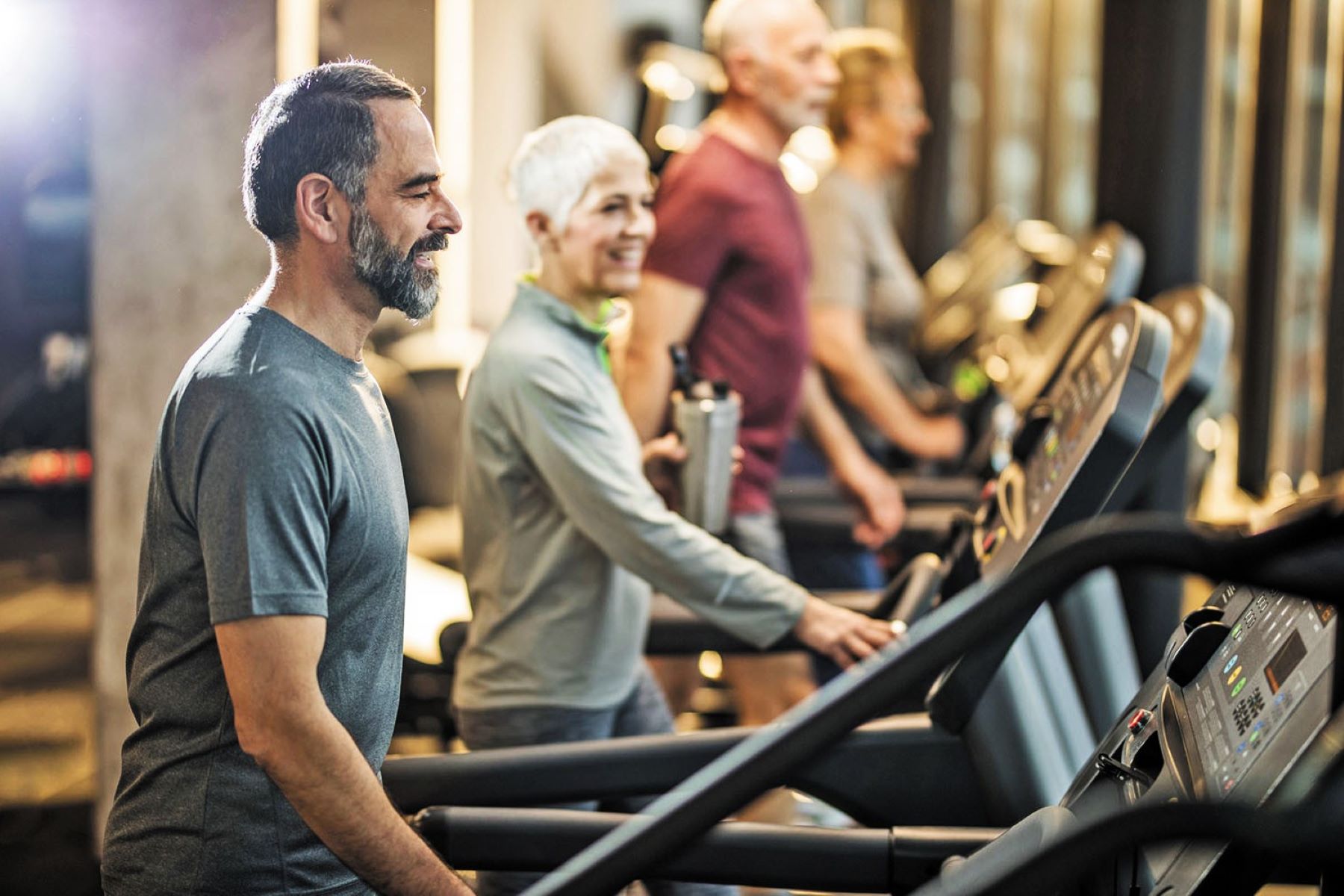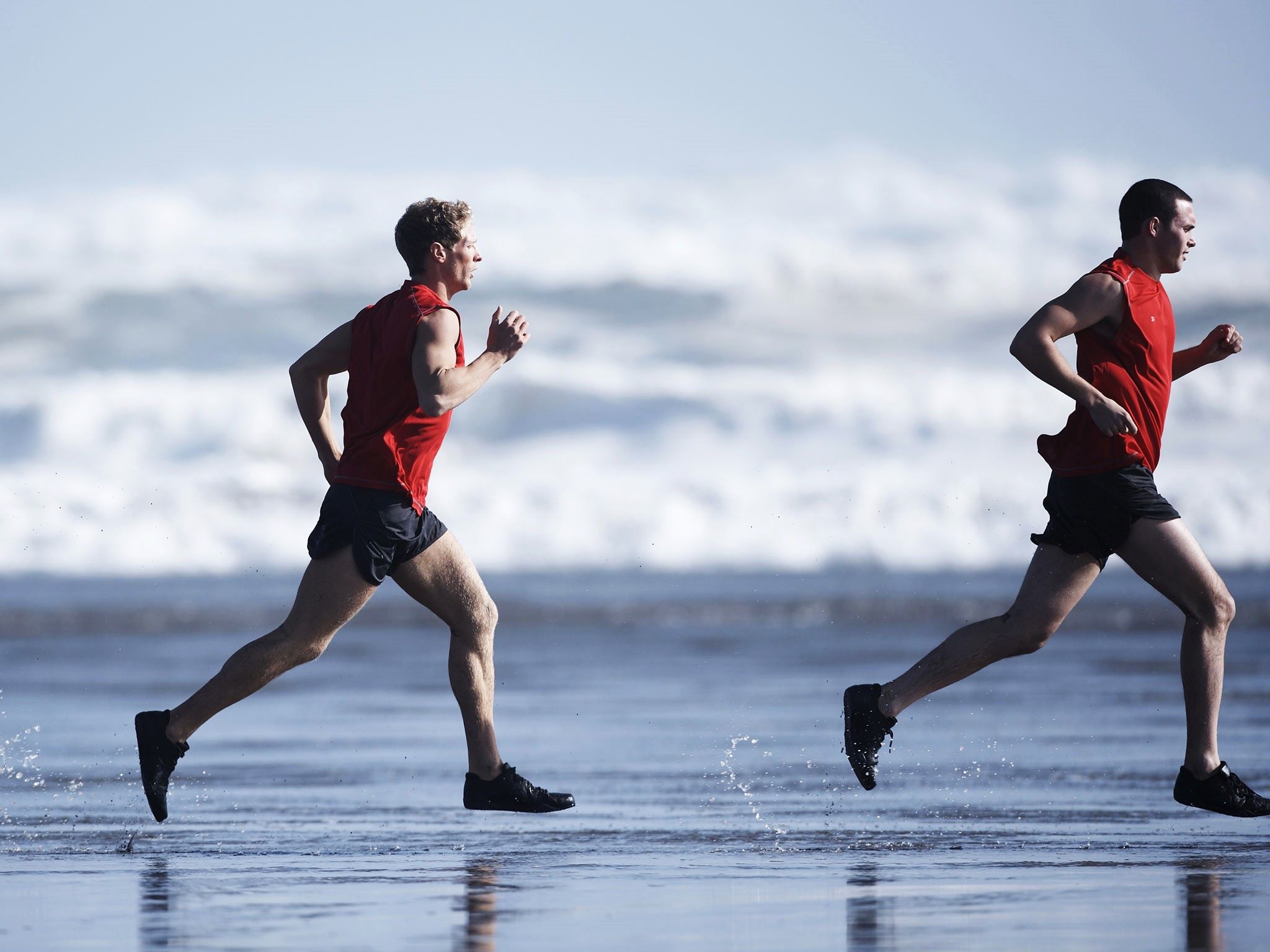Home>Health & Nutrition>The Impact Of Covid On Running
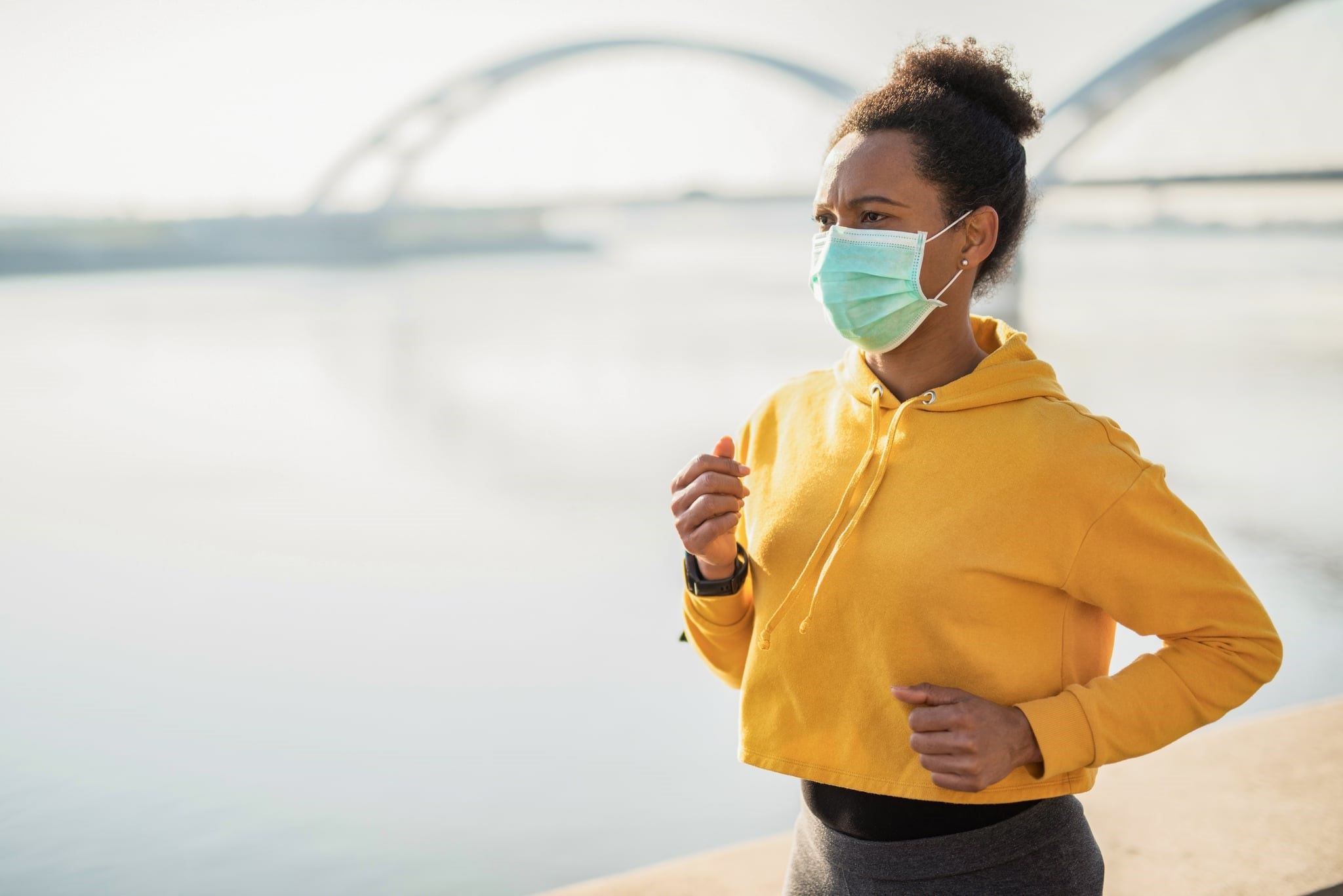

Health & Nutrition
The Impact Of Covid On Running
Published: February 24, 2024
Discover the effects of Covid on running and learn how to maintain your health and nutrition during these challenging times. Explore expert tips and advice to stay fit and active.
(Many of the links in this article redirect to a specific reviewed product. Your purchase of these products through affiliate links helps to generate commission for Therunningadvisor.com, at no extra cost. Learn more)
Table of Contents
The Evolution of Running during the Pandemic
The Covid-19 pandemic has undeniably reshaped the landscape of running, altering the way individuals engage with this popular form of exercise and recreation. As lockdowns and social distancing measures were implemented worldwide, people turned to running as a means of maintaining physical and mental well-being amidst the uncertainty and stress. This surge in interest led to a remarkable evolution in the running community, with several notable trends emerging.
Read more: The Impact Of Running On Meniscal Cysts
Embracing Solo Running
One of the most significant shifts witnessed during the pandemic was the widespread adoption of solo running. With restrictions on group gatherings and organized events, many runners transitioned from participating in races and group runs to lacing up their shoes and hitting the pavement alone. This shift not only allowed individuals to adhere to safety guidelines but also provided a sense of freedom and autonomy, enabling runners to tailor their routes and schedules to suit their preferences.
Virtual Racing and Community Engagement
In response to the cancellation of traditional races, virtual running events gained popularity, offering participants the opportunity to compete and connect with fellow runners from a distance. These virtual races not only provided a sense of camaraderie and competition but also supported charitable causes, fostering a spirit of unity within the running community. Additionally, social media platforms and fitness apps played a pivotal role in maintaining a sense of community, as runners shared their experiences, milestones, and encouragement virtually.
Focus on Health and Wellness
The pandemic prompted a heightened focus on health and wellness, leading many individuals to prioritize running as a means of staying active and managing stress. With gyms and fitness facilities temporarily closed, running emerged as a convenient and accessible way to maintain physical fitness and mental resilience. Moreover, the emphasis on overall well-being prompted runners to explore diverse terrains, from urban streets to scenic trails, fostering a deeper appreciation for the outdoors and the therapeutic benefits of nature.
Innovation in Training and Technology
As traditional training routines were disrupted, runners turned to innovative approaches and technology to enhance their performance and motivation. From virtual coaching and interactive training platforms to wearable fitness devices, the pandemic accelerated the integration of technology into running practices. This digital transformation not only provided runners with personalized training resources but also facilitated real-time tracking of progress and goals, empowering individuals to adapt and thrive in a rapidly changing environment.
The evolution of running during the pandemic reflects the resilience and adaptability of the running community, as individuals embraced new ways of staying active, connected, and motivated. While the pandemic presented unprecedented challenges, it also sparked a wave of creativity and solidarity within the running world, shaping the future of this enduring and beloved pursuit.
Changes in Running Habits and Behaviors
The onset of the Covid-19 pandemic precipitated a profound transformation in the running habits and behaviors of individuals worldwide. As lockdowns and social distancing measures became the norm, people sought solace and stability in the simple act of running, leading to notable shifts in their approach to this form of exercise and recreation.
Read more: The Impact Of Running On Meniscal Cysts
Embracing Solo Running
The most prominent change observed during the pandemic was the widespread adoption of solo running. With restrictions on group gatherings and organized events, many runners transitioned from participating in races and group runs to lacing up their shoes and hitting the pavement alone. This shift not only allowed individuals to adhere to safety guidelines but also provided a sense of freedom and autonomy, enabling runners to tailor their routes and schedules to suit their preferences. The solitary nature of running during this period also offered a respite from the challenges of isolation, providing individuals with a much-needed opportunity for introspection and self-care.
Virtual Racing and Community Engagement
In response to the cancellation of traditional races, virtual running events gained significant traction, offering participants the opportunity to compete and connect with fellow runners from a distance. These virtual races not only provided a sense of camaraderie and competition but also supported charitable causes, fostering a spirit of unity within the running community. Additionally, social media platforms and fitness apps played a pivotal role in maintaining a sense of community, as runners shared their experiences, milestones, and encouragement virtually. The virtual realm became a platform for fostering connections and celebrating achievements, serving as a testament to the resilience and adaptability of the running community.
Shift in Training and Priorities
The pandemic prompted a fundamental shift in the training and priorities of runners, as individuals reevaluated their goals and motivations in the face of uncertainty. With traditional races and events put on hold, many runners redirected their focus towards personal growth and holistic well-being, emphasizing the intrinsic rewards of running over external accolades. This shift in mindset led to a surge in self-paced and mindful running, with individuals embracing the opportunity to reconnect with the pure joy of the sport. Moreover, the absence of competitive pressure allowed runners to explore diverse terrains and training approaches, fostering a renewed sense of creativity and exploration.
Adapting to Change
The unprecedented circumstances of the pandemic compelled runners to adapt to change with resilience and ingenuity. From adjusting training schedules to accommodating new safety protocols, individuals demonstrated remarkable flexibility in navigating the evolving landscape of running. Moreover, the emphasis on adaptability extended beyond logistical adjustments, as runners embraced a more inclusive and supportive ethos within the community. Acts of kindness, encouragement, and solidarity became defining features of the running experience, reflecting a collective determination to overcome adversity and thrive in the face of uncertainty.
The changes in running habits and behaviors witnessed during the pandemic underscore the remarkable capacity of individuals to adapt, evolve, and find solace in the simple yet profound act of running. As the world gradually emerges from the challenges of the pandemic, these shifts serve as a testament to the enduring spirit of the running community, embodying resilience, unity, and a steadfast commitment to embracing change with grace and determination.
The Mental and Emotional Effects of Covid on Runners
The Covid-19 pandemic has exerted a profound impact on the mental and emotional well-being of runners, eliciting a spectrum of responses and challenges as individuals navigated the uncertainties and disruptions brought about by the global crisis. The convergence of isolation, anxiety, and upheaval has underscored the pivotal role of running as a source of solace, resilience, and emotional sustenance for many.
Coping with Isolation and Uncertainty
The imposition of lockdowns and social distancing measures resulted in heightened feelings of isolation and disconnection among runners. The absence of in-person races, group runs, and social gatherings deprived individuals of the communal support and camaraderie integral to the running experience. Consequently, many runners grappled with a sense of loneliness and longing for the shared energy and encouragement that defined their pre-pandemic running routines. The pervasive uncertainty surrounding the duration and impact of the pandemic further compounded these feelings, leading to heightened stress and emotional strain.
Running as a Source of Stability and Empowerment
Amidst the tumultuous backdrop of the pandemic, running emerged as a steadfast source of stability and empowerment for individuals. The act of lacing up their shoes and embarking on solitary runs provided a semblance of routine and purpose, offering a respite from the disquieting news and disruptions permeating daily life. Moreover, running served as a tangible manifestation of agency and control, allowing individuals to reclaim a sense of autonomy and accomplishment in the face of pervasive uncertainty. The meditative rhythm of each stride and the endorphin-fueled euphoria of a run became invaluable anchors amidst the turbulence of the pandemic.
Read more: The Impact Of Raynaud’s Syndrome On Runners
Navigating Mental Health Challenges
The pandemic precipitated a surge in mental health challenges among runners, as individuals contended with heightened anxiety, stress, and emotional fatigue. The compounding effects of social isolation, economic strain, and health concerns contributed to a pervasive sense of unease and vulnerability. Many runners found themselves grappling with fluctuating motivation, emotional exhaustion, and a sense of disconnection from their usual support networks. The absence of familiar coping mechanisms and outlets further exacerbated these challenges, prompting individuals to confront and navigate their mental health with resilience and resourcefulness.
Cultivating Resilience and Adaptability
Despite the formidable mental and emotional toll of the pandemic, runners demonstrated remarkable resilience and adaptability in navigating these challenges. The act of running, whether in solitude or through virtual engagement, became a testament to the unwavering spirit and fortitude of individuals. The commitment to lacing up and persevering through each run, despite the emotional weight of the times, exemplified a profound resilience and determination to endure and thrive amidst adversity.
The mental and emotional effects of Covid-19 on runners have been multifaceted and profound, underscoring the pivotal role of running as a source of solace, empowerment, and resilience in the face of unprecedented challenges. As the world continues to navigate the aftermath of the pandemic, the enduring impact of running on mental and emotional well-being serves as a testament to the unwavering spirit and resilience of the running community.
Physical Health and Fitness Impacts of the Pandemic
The Covid-19 pandemic has exerted a profound influence on the physical health and fitness of individuals, prompting a reevaluation of exercise routines, lifestyle habits, and overall well-being. As the world grappled with the challenges of lockdowns, social distancing, and restricted access to traditional fitness facilities, the pandemic catalyzed a paradigm shift in the way people approached their health and fitness goals.
Emphasis on Outdoor Exercise and Running
With the temporary closure of gyms and fitness centers, many individuals turned to outdoor activities, particularly running, as a primary means of staying active and maintaining physical fitness. The accessibility and simplicity of running made it an appealing choice for individuals seeking to engage in a safe and socially distanced form of exercise. The act of running not only provided a cardiovascular workout but also offered a therapeutic escape from the confines of indoor spaces, allowing individuals to immerse themselves in the rejuvenating embrace of nature.
Diversification of Exercise Routines
The pandemic prompted a diversification of exercise routines, as individuals sought creative and adaptable ways to stay fit amidst the constraints of lockdowns and limited access to traditional fitness resources. Many runners incorporated cross-training activities, bodyweight exercises, and yoga into their regimens, fostering a holistic approach to physical fitness. This diversification not only enhanced overall strength and flexibility but also mitigated the monotony of repetitive running, contributing to a more well-rounded and sustainable fitness routine.
Mental Health and Physical Well-Being
The interplay between mental health and physical well-being became increasingly salient during the pandemic, as individuals recognized the symbiotic relationship between exercise and emotional resilience. Running emerged as a potent tool for managing stress, anxiety, and emotional fatigue, offering a cathartic outlet for processing the uncertainties and upheavals of the times. The release of endorphins during running not only uplifted mood but also bolstered mental clarity and fortitude, underscoring the integral role of physical activity in nurturing holistic well-being.
Adaptation and Innovation in Training
The pandemic spurred adaptation and innovation in training approaches, as runners embraced virtual coaching, interactive training platforms, and wearable fitness technology to optimize their performance and motivation. The integration of technology into running practices facilitated personalized training plans, real-time progress tracking, and virtual connectivity with coaches and fellow runners. This digital transformation not only empowered individuals to adapt to the evolving fitness landscape but also fostered a sense of accountability and motivation in pursuing their health and fitness goals.
Long-Term Impact and Sustainability
The physical health and fitness impacts of the pandemic have engendered a lasting shift in the way individuals approach exercise, prioritize well-being, and engage with the broader fitness community. The resilience and adaptability demonstrated by runners in navigating the challenges of the pandemic have underscored the enduring commitment to sustaining a healthy and active lifestyle, transcending the constraints of external circumstances. As the world gradually emerges from the pandemic, the legacy of these shifts in physical health and fitness will continue to shape the evolving landscape of exercise and well-being, fostering a renewed appreciation for the transformative power of running and holistic fitness practices.
Read more: The Impact Of Running On Female Health
The Future of Running Post-Covid
The post-Covid era heralds a transformative phase for the running community, characterized by a convergence of resilience, innovation, and renewed appreciation for the intrinsic value of running. As the world gradually emerges from the challenges of the pandemic, the future of running is poised to reflect a dynamic evolution, shaped by enduring lessons, adaptive strategies, and a collective commitment to redefining the running experience.
Embracing Hybrid Engagement and Community Revitalization
The future of running post-Covid is marked by a hybrid approach to engagement, blending the newfound affinity for solo running with a resurgence of community-driven events and gatherings. While solo running has emerged as a cornerstone of the pandemic era, the post-Covid landscape will witness a revitalization of in-person races, group runs, and community-based initiatives. This hybrid model of engagement not only honors the autonomy and flexibility embraced during the pandemic but also fosters a sense of collective celebration, camaraderie, and shared accomplishment within the running community.
Integration of Technology and Personalized Training
The future of running post-Covid will be characterized by a seamless integration of technology into training practices, offering runners personalized insights, interactive coaching, and virtual connectivity. The digital innovations that gained prominence during the pandemic, such as virtual racing platforms, wearable fitness devices, and interactive training apps, will continue to redefine the training landscape, empowering runners to optimize their performance, track their progress, and connect with a global network of fellow enthusiasts. This fusion of technology and personalized training will not only enhance the accessibility and inclusivity of running but also cultivate a culture of continuous improvement and support within the community.
Wellness-Centric Approach and Mindful Running
The post-Covid era will witness a pronounced shift towards a wellness-centric approach to running, emphasizing the holistic benefits of the sport beyond physical fitness. Mindful running, characterized by a focus on mental clarity, emotional well-being, and self-care, will gain prominence as individuals prioritize the restorative and meditative aspects of running. This shift towards mindful running will underscore the enduring role of running as a source of solace, resilience, and emotional sustenance, fostering a deeper connection with the innate joy and therapeutic potential of the sport.
Read more: The Impact Of Running On Muscle Hernia
Sustainable Practices and Environmental Consciousness
The future of running post-Covid will be underpinned by a heightened awareness of sustainability and environmental consciousness within the running community. Individuals will embrace eco-friendly practices, such as trail conservation, waste reduction, and responsible event management, aligning their running pursuits with a commitment to preserving and nurturing the natural landscapes that serve as the backdrop for their endeavors. This collective ethos of environmental stewardship will not only underscore the interconnectedness of running and nature but also inspire a renewed reverence for the outdoor spaces that form the tapestry of the running experience.
In essence, the future of running post-Covid embodies a harmonious synthesis of individual empowerment, community solidarity, technological innovation, and holistic well-being. As runners navigate the transition into this new chapter, they will carry forward the resilience, adaptability, and enduring spirit that defined their journey through the pandemic, shaping a future that celebrates the transformative power of running in all its dimensions.

